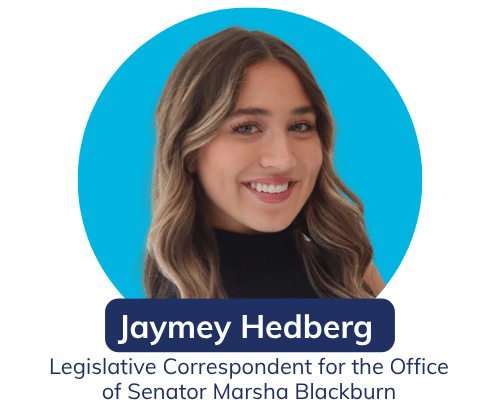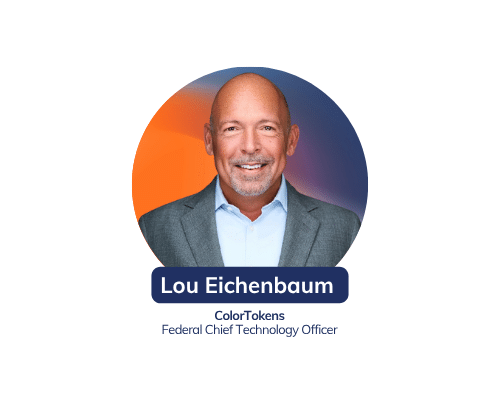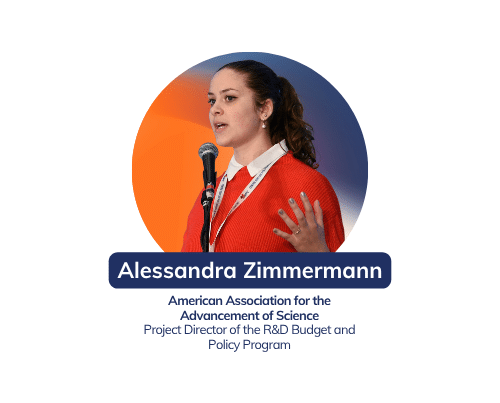Coral Torres, Chief of Staff for the Office of the Under Secretary for Transportation Policy at the U.S. Department of Transportation, brings a wealth of experience from her journey in the transportation sector. Her career within the Federal Government spans 16 years, during which she has contributed to major infrastructure initiatives and sustainability efforts. Coral’s current role as a Presidential Appointee involves implementing the Bipartisan Infrastructure Law and dedicating herself to USDOT’s mission of ensuring the safety, efficiency, and accessibility of US transportation systems. Her story showcases the diverse opportunities within the agency, and her commitment to building sustainable and equitable transportation solutions.
Can you tell me about your career path that has led you to where you are now?
I was born and raised in Puerto Rico. I studied there and got my bachelor’s degree from the University of Puerto Rico in Civil and Environmental Engineering. My interest in building things came from me watching my grandfather build many things in our hometown. Homes, businesses, and seeing people and how they appreciated the work that he was doing in our community and how it created a better life for others really inspired me. After I graduated, I moved to New York to pursue a master’s degree in Transportation Engineering. During my time in Puerto Rico, I also had the opportunity to work with state and local agencies on different infrastructure projects. One of the most influential projects at the time, was the first metro system that was ever built in Puerto Rico. Having the opportunity to work on that project, gave me hope and a new vision of progress for the island. After that experience, I wanted to see different projects and infrastructure in other places in the country, and New York gave me an opportunity to learn much more. I had a great experience there while I was in graduate school. I was able to work on research projects with state and local agencies in New York including some of the first research initiatives around congestion pricing in New York City.
Once I graduated, I started working in the federal government about 16 years ago. The first agency I worked at was USDOT, where I am now working as a Presidential Appointee. It’s a great agency to work for. Our mission is to build world class infrastructure that is safe, sustainable, reliable, and equitable. I’ve had many amazing opportunities throughout my time at USDOT and I have worked on many infrastructure projects across the country including highway projects, public transportation, airports, and much more. I’ve also worked at other federal agencies including the Surface Transportation Board, which focuses on the economic regulation of the Class 1 railroad industry in the U.S. I also spent some time at the White House Council on Environmental Quality, working on federal sustainability efforts and Executive Orders that promoted the use of electric vehicles to reduce emissions.
And now I’m back at USDOT helping with the implementation of the largest investment in infrastructure the country has seen, the Bipartisan Infrastructure Law. It has been an amazing two and a half years for me, where I am part of a team that has helped fund over 60,000 projects so far and have provided more than $450 billion in funding to many communities across the country. It’s a very exciting time to work at USDOT and doing new and exciting things to help improve the infrastructure of our country.
Which specific policy area or legislative issues are you most passionate about, and how do you stay informed and engaged in those areas?
For me, climate change – resilient and sustainable infrastructure, have always been a part of the work I’ve done, even during my time in college. Also, equitable investments are a crucial part of the work we do and that I am passionate about. It’s not only about building the infrastructure, but also about creating regulations, and policies that take into consideration those issues. Those are issues close to me because I grew up in a place where I’ve seen the impact of climate change in my community. For example, we recently had two of the most severe hurricanes we have seen in recent history. And I am now fortunate to be able to work on projects and initiatives that help communities mitigate the impacts of climate change and build safer and more equitable infrastructure.
With the opportunities we have at the federal level and the Bipartisan Infrastructure Law, we can now provide a better quality of life to many communities across the country. That’s part of the reason I was excited to go back to USDOT and help with this work. For the first time ever, we have programs that fund electric vehicle charging stations, funds for infrastructure for coastal communities that have been impacted by climate change, and programs like the Reconnecting and Thriving Communities that foster equitable development and restoration of communities impacted by past investments that were divisive and not inclusive of the needs of those communities. This is very important work that has taken a long time to become a reality and seeing the impact that is having on people’s lives, it’s a very rewarding thing to be part of.
And during my free time, I also enjoy volunteering on efforts to advance women’s reproductive rights, equal pay and women sports initiatives.
What do you believe sets the federal government apart as a unique work environment, and how do you navigate its challenges in your everyday work?
The federal government is a very powerful and influential place to work. The decisions we make have the potential of impacting the lives of many people in this country and across the world. I think one thing people take for granted is the quality of professionals we have in the federal workforce. I’ve seen some of the brightest and most intelligent people working in this field, and the level of commitment they bring to work every day and the passion they bring to the work we do is very impressive. It’s something I’m very proud to be part of and to work with a team of people that are extremely dedicated to our missions.
Some of the challenges I’ve experienced include being allowed to have a seat at the table to provide my expertise on making better and innovative infrastructure decisions that can improve the quality of life of people, particularly the communities that I represent. The federal government is a large institution, and it can often be difficult to find opportunities to influence decisions. I’ve been fortunate to work for amazing leaders that understand these challenges and that have opened doors for me and I’m very grateful for that. Leaders like, Secretary Pete Buttigieg and Deputy Secretary Polly Trottenberg who are champions in making sure that the workforce we have in the federal government, and USDOT, is representative of the problems we must solve. And that is something that is very present in the projects and policies we have worked on for the past three and a half years, and it’s something I am very proud to be a part of.
Like any other workplace, the federal government has opportunities and challenges, but these are challenges that open doors for good things to happen.
Describe a challenging or rewarding project that significantly influenced your growth as a professional. How did you handle the challenge, and what did you learn from the experience?
I mentioned my time in Puerto Rico working with the state and local government on the first ever metro system they built in the island, which was a very influential project in my career. For a long time, many people thought this couldn’t be done. It required a lot of money and investments from different levels – not only federal, state, and local but also, many people had to come together to make it happen. Seeing that inspired me to learn more and open doors for more people to have access to those opportunities.
And now, thanks to the Infrastructure Law and the new programs we are implementing, I have an opportunity to meet people and communities across the country who receive our funding and I’m learning about their projects and how those are impacting their communities. One project I visited recently is a community in Portland, Oregon which received a Reconnecting Communities grant from us. Many years ago, this community was segregated because of the construction of the interstate system through the middle of their neighborhood. It’s a community of people of color that have been underrepresented for a long time and had to deal with the impact of bad planning and engineering decisions. And they are now looking to fix some of those mistakes to provide more opportunities for local businesses and a better quality of life for residents in the community. It was very rewarding to meet with community leaders and hear their stories and vision for a project that will bring that community together again. There’s also a nonprofit, Albina Vision, that has done tremendous work with the community and their vision for this project. Being able to see and hear the generational work, and being in the room when we announced a $450 million grant that will help them build a highway cap park to reconnect the two sides of the community and create spaces for recreation and for local businesses to thrive, was a very profound moment. It was a full circle moment.
What has made you successful in your role and what advice would you give to individuals who aspire to work in the Federal Government?
I’ve been very fortunate to have worked for amazing leaders that have mentored me and opened doors for me. This administration has provided opportunities for people from all backgrounds to not only use their professional knowledge and areas of expertise but also bringing their perspective on the issues their communities deal with.
Through my time in the federal government, including the White House, the one thing I take with me is the environment of respect, community, unity, and inclusivity that we create to make effective decisions. We have to listen to one another, because we have very complicated problems to solve in many instances and perspectives from all background are very important for effective decisions to happen. Without these competencies, it’s very difficult to make effective decisions and outcomes.
I take that advise with me every day and I share it with my team because without this, it would be difficult to accomplish the level of work and commitments we have achieved so far.
Word Association, what is the first word that comes to mind for each of these?
- Policy – Change
- Networking – Opportunities
- Writing skills – Important, very important
- Federal government – Powerful and fundamental
- Leadership Connect – Informative






